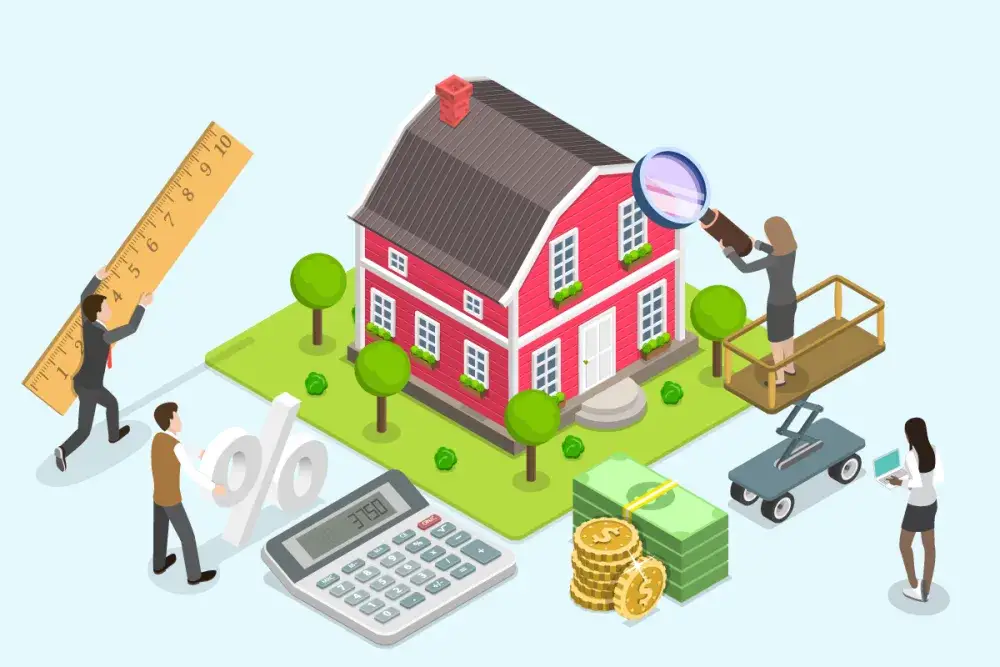
How to Get a Mortgage: Your Comprehensive Guide
Buying a home is a significant milestone in life, signifying stability, security, and a sense of accomplishment. For many, this journey begins with the crucial step of securing a mortgage. Whether you're a first-time homebuyer or looking to refinance, understanding the ins and outs of the mortgage process is vital. In this guide, we'll take you through each step, providing insights, tips, and strategies to help you navigate the complex world of mortgages.
Introduction
Importance of Homeownership
Owning a home is more than having a roof over your head. It's about creating a space that reflects your personality, building a future for your family, and establishing financial stability. Homeownership often brings a sense of pride and accomplishment, making it a goal for many.
Overview of the Mortgage Process
The journey to homeownership typically starts with obtaining a mortgage. This process involves working with lenders, understanding financial terms, and making critical decisions. Let's delve into the intricacies of mortgages and guide you on how to make this process smoother.
Understanding Mortgages
Definition and Types
At its core, a mortgage is a loan that allows you to buy a home by using the property as collateral. There are various types of mortgages, each with its own set of terms and conditions. Understanding these options is crucial to making an informed decision.
Fixed-Rate vs. Adjustable-Rate Mortgages
One of the primary decisions you'll face is choosing between a fixed-rate and an adjustable-rate mortgage. Each has its advantages and disadvantages, impacting your monthly payments and overall financial strategy.
Qualifying for a Mortgage
Credit Scores and Reports
Your credit history plays a significant role in determining your eligibility for a mortgage. We'll explore the importance of credit scores, how they're calculated, and strategies to improve or maintain a favorable credit standing.
Debt-to-Income Ratio
Lenders analyze your debt-to-income ratio to assess your ability to manage mortgage payments. We'll guide you on how to calculate this ratio and steps to take if yours is not within the optimal range.
Employment and Income Verification
Stable employment and a consistent income are essential for mortgage approval. We'll provide tips on presenting your financial stability to lenders and navigating potential hurdles.
Researching Mortgage Options
Comparison Shopping
Not all mortgages are created equal. Comparison shopping allows you to explore different lenders, their offerings, and find the terms that best suit your financial situation.
Mortgage Rates and Terms
Understanding how mortgage rates and terms impact your payments is crucial. We'll break down the complexities, helping you make an informed decision on the duration and interest rate of your mortgage.
Saving for a Down Payment
Importance of a Down Payment
A substantial down payment can positively influence your mortgage terms. We'll discuss the significance of a down payment and strategies to save for this critical upfront cost.
Creative Ways to Save
Saving for a down payment doesn't have to be overwhelming. We'll explore creative and practical ways to set aside funds, making your homeownership dreams more achievable.
Navigating the Application Process
Required Documentation
The mortgage application process involves providing a plethora of documents. We'll create a checklist, ensuring you have everything ready to streamline the application process.
Pre-Approval vs. Pre-Qualification
Understanding the difference between pre-approval and pre-qualification is essential. We'll guide you through both processes, helping you present a strong case to potential lenders.
Choosing the Right Mortgage Lender
Local vs. National Lenders
Deciding between local and national lenders can impact your overall mortgage experience. We'll discuss the pros and cons of each, helping you make an informed decision.
Reading Reviews and Testimonials
Before committing to a lender, it's crucial to research their reputation. We'll provide insights into reading reviews and testimonials, giving you confidence in your chosen lender.
Understanding Closing Costs
Common Closing Costs
Closing costs can catch many homebuyers off guard. We'll break down common closing costs, allowing you to budget effectively and negotiate with lenders.
Negotiating with Lenders
Don't be afraid to negotiate! We'll share tips on how to negotiate closing costs and other fees, potentially saving you thousands in the long run.
Securing Your Mortgage
The Closing Process
The closing process is the final step before becoming a homeowner. We'll guide you through what to expect, ensuring a smooth transition from loan approval to property ownership.
Finalizing the Deal
Crossing the finish line requires attention to detail. We'll provide a checklist to ensure you've completed all necessary steps for a successful closing.
Managing Your Mortgage Responsibly
Budgeting for Monthly Payments
Owning a home comes with monthly responsibilities. We'll help you create a budget that includes mortgage payments, ensuring you stay on top of your financial commitments.
Dealing with Unexpected Financial Changes
Life is unpredictable, and financial changes can occur. We'll provide strategies for navigating unexpected circumstances while maintaining a healthy mortgage status.
Tips for First-Time Homebuyers
Common Pitfalls to Avoid
First-time homebuyers often face unique challenges. We'll highlight common pitfalls and offer advice on how to steer clear of potential issues.
Seeking Professional Guidance
Navigating the real estate market can be daunting. We'll discuss the benefits of seeking professional guidance, from real estate agents to mortgage advisors.
Benefits of Homeownership
Building Equity
Owning a home is an investment in your financial future. We'll explore how homeownership allows you to build equity over time, increasing your overall net worth.
Long-Term Investment
Beyond immediate financial benefits, homeownership is a long-term investment. We'll discuss how property values typically appreciate over time, making it a sound financial decision.
Dealing with Mortgage Challenges
Refinancing Options
If faced with financial challenges, refinancing may be a viable option. We'll explore when and how to refinance, helping you make informed decisions to improve your financial situation.
Mortgage Assistance Programs
Government and private programs exist to assist homeowners facing financial difficulties. We'll provide information on available assistance programs, offering a safety net during challenging times.
Staying Informed about Market Trends
Monitoring Interest Rates
Interest rates play a significant role in your mortgage payments. We'll discuss how to stay informed about market trends, helping you make strategic decisions regarding your mortgage.
Adapting to Market Changes
The real estate market is dynamic. We'll guide you on how to adapt to market changes, ensuring your mortgage strategy remains effective in various economic conditions.
Conclusion
Achieving your dream of homeownership involves a multifaceted journey, from understanding mortgages to navigating the application process. By staying informed and making strategic decisions, you can turn this significant milestone into a reality.
In conclusion, the path to homeownership may seem complex, but armed with knowledge and guidance, you can confidently navigate each step. Remember, your home is not just a place; it's an investment in your future.
Frequently Asked Questions (FAQs)
Q: Can I get a mortgage with a low credit score?
A: While a higher credit score is ideal, some lenders offer mortgage options for those with lower credit scores. It's crucial to explore your options and work on improving your credit before applying.
Q: How much should I save for a down payment?
A: The recommended down payment is usually 20% of the home's purchase price. However, various programs and loans allow for smaller down payments. Evaluate your financial situation and aim for the highest down payment you can afford.
Q: What's the difference between pre-approval and pre-qualification?
A: Pre-qualification provides an estimate of how much you can borrow, while pre-approval is a more thorough process involving a credit check and income verification. Pre-approval carries more weight in the homebuying process.
Q: How can I negotiate closing costs with a lender?
A: Research closing costs, and don't hesitate to negotiate with your lender. Compare offers from different lenders, and express your willingness to walk away if the costs are too high.
Q: Are there government programs to assist with mortgage payments during financial hardship?
A: Yes, several government and private programs exist to assist homeowners facing financial challenges. Explore options like loan modification and mortgage assistance programs to get the support you need.
